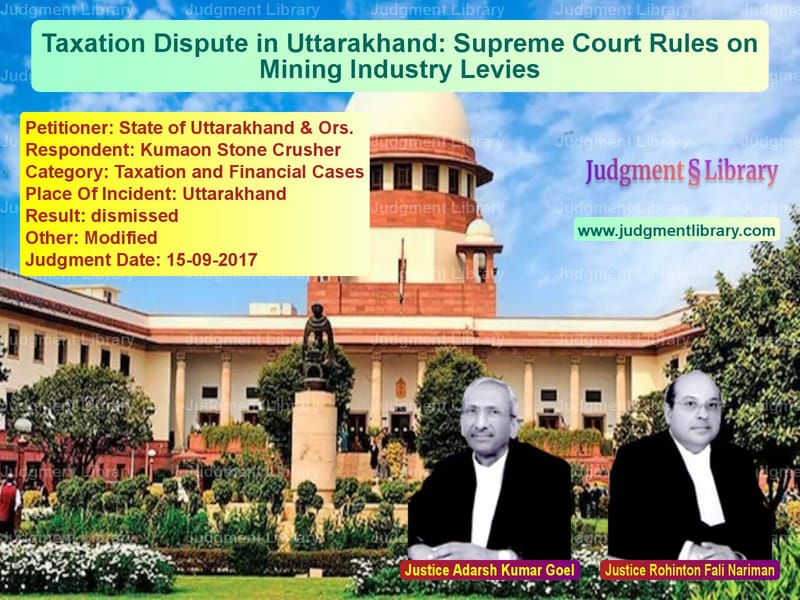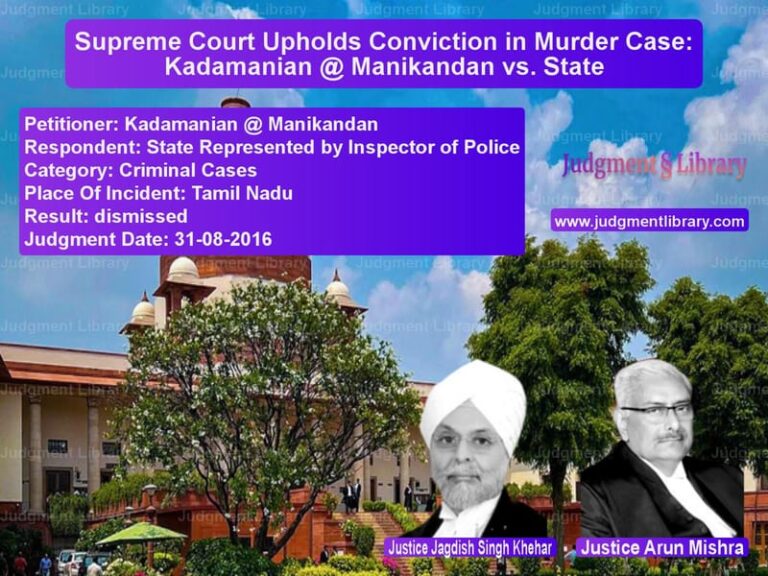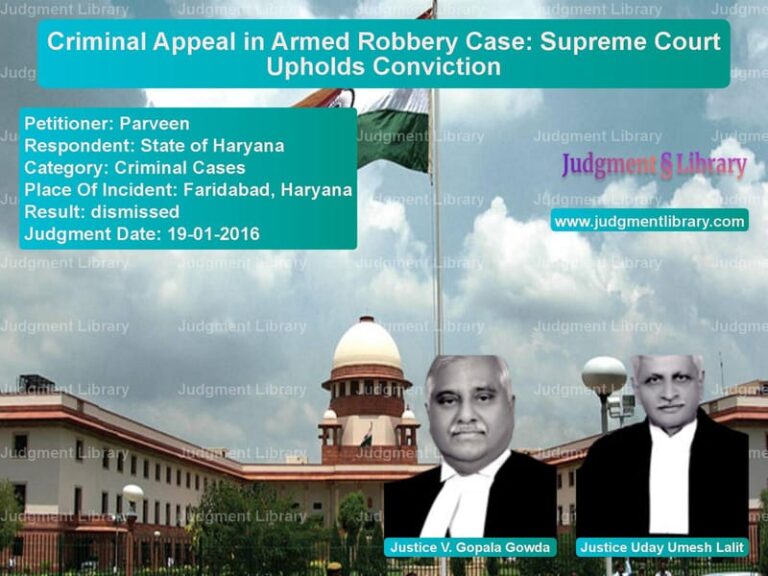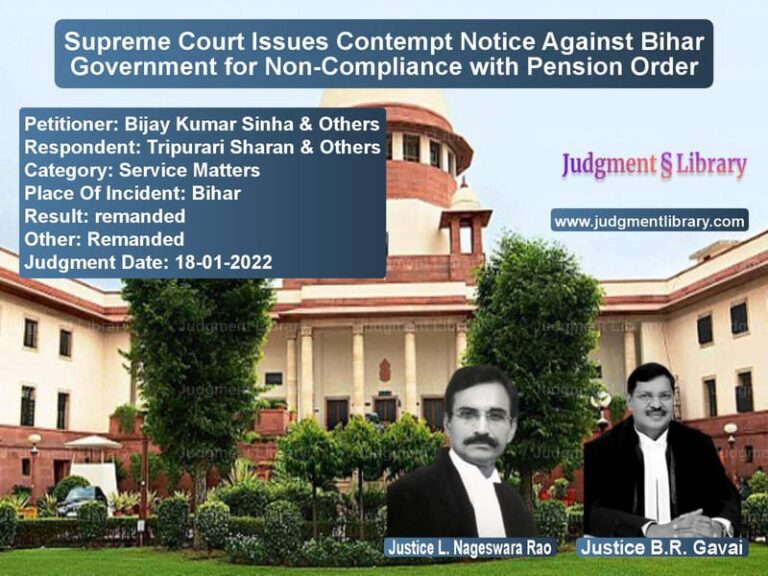Taxation Dispute in Uttarakhand: Supreme Court Rules on Mining Industry Levies
The case of State of Uttarakhand & Ors. vs. Kumaon Stone Crusher is a landmark judgment concerning the taxation of mining activities. The Supreme Court was tasked with determining whether the taxes levied by the Uttarakhand government on mining activities, particularly stone crushing, were constitutional and within the state’s legislative competence. The decision had broad implications for environmental taxation, state taxation powers, and the mining industry’s regulatory framework.
Background of the Case
The petitioner, the State of Uttarakhand, imposed taxes and levies on mining activities under various state laws. The respondent, Kumaon Stone Crusher, challenged these taxes, arguing that they were excessive, arbitrary, and unconstitutional. The primary issues before the Supreme Court were:
- Whether the taxation of mining activities was within the legislative competence of the state.
- Whether the taxation policy violated constitutional provisions regarding trade and commerce.
- The impact of such taxation on the mining and stone-crushing industry.
The case had significant economic and environmental implications, as it dealt with balancing state revenue collection with business viability and environmental conservation.
Arguments of the Petitioner
The State of Uttarakhand put forth the following arguments:
- The state government had the constitutional authority to impose taxes on mining activities under its legislative powers.
- Environmental concerns justified taxation as a means of regulating mining operations and mitigating ecological damage.
- Similar taxation measures had been upheld in other states, demonstrating their legal validity.
- The taxation policy ensured that businesses involved in resource extraction contributed fairly to state revenue and environmental conservation efforts.
Arguments of the Respondent
The respondent, Kumaon Stone Crusher, argued that:
- The tax imposed was arbitrary, excessive, and discriminatory against the stone-crushing industry.
- The Uttarakhand government had exceeded its legislative competence in imposing the tax.
- The taxation policy disproportionately affected businesses in the mining sector, making operations unviable.
- The taxation measures were not aligned with constitutional principles and legal precedents.
Key Observations by the Court
The Supreme Court conducted a detailed analysis of the constitutional provisions governing state taxation and mining regulation. It examined:
- Whether the taxation measures were within the scope of the state’s legislative authority.
- Whether the taxation policy complied with Article 301 of the Constitution, which ensures the freedom of trade and commerce.
- The environmental rationale behind the taxation measures.
The Court noted:
“The power to impose taxation must be exercised in a manner that does not violate constitutional provisions and does not result in an unfair burden on a specific industry.”
It further emphasized that while states have the authority to regulate mining, such regulations should not stifle legitimate business operations through excessive taxation.
Final Judgment
After carefully evaluating the arguments, the Supreme Court ruled in favor of the respondent, Kumaon Stone Crusher. The key findings were:
- The taxation measures imposed by the Uttarakhand government were not in strict compliance with constitutional provisions.
- The state had overstepped its legislative competence in certain aspects of its taxation policy.
- While states can regulate mining activities through taxation, such taxation must be reasonable and proportionate.
- The taxation policy needed modifications to align with constitutional principles and business viability.
The Court dismissed the state’s appeal but allowed certain modifications to the taxation framework to ensure legal compliance.
Implications of the Judgment
This ruling has significant implications for taxation law and the mining industry:
- It sets a precedent for how state governments can impose taxes on industries while ensuring constitutional compliance.
- It underscores the importance of balancing environmental concerns with economic considerations.
- It provides clarity on the legislative competence of states in regulating mining activities.
- It strengthens the legal framework for businesses challenging excessive taxation.
Conclusion
The Supreme Court’s ruling in this case serves as an important precedent in taxation law. It clarifies the limits of state taxation powers and reinforces the constitutional principles governing trade and commerce. The decision ensures that taxation policies are fair, reasonable, and legally sound, balancing the interests of the state, businesses, and environmental conservation efforts.
Don’t miss out on the full details! Download the complete judgment in PDF format below and gain valuable insights instantly!
Download Judgment: State of Uttarakhand vs Kumaon Stone Crusher Supreme Court of India Judgment Dated 15-09-2017.pdf
Direct Downlaod Judgment: Direct downlaod this Judgment
See all petitions in Income Tax Disputes
See all petitions in GST Law
See all petitions in Tax Evasion Cases
See all petitions in Banking Regulations
See all petitions in Judgment by Adarsh Kumar Goel
See all petitions in Judgment by Rohinton Fali Nariman
See all petitions in dismissed
See all petitions in Modified
See all petitions in supreme court of India judgments September 2017
See all petitions in 2017 judgments
See all posts in Taxation and Financial Cases Category
See all allowed petitions in Taxation and Financial Cases Category
See all Dismissed petitions in Taxation and Financial Cases Category
See all partially allowed petitions in Taxation and Financial Cases Category







